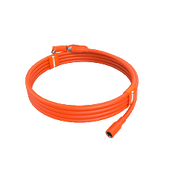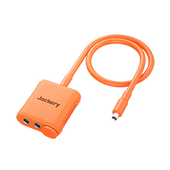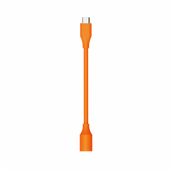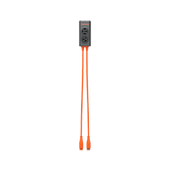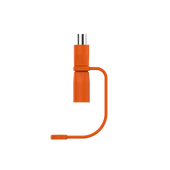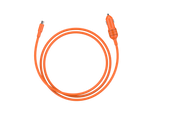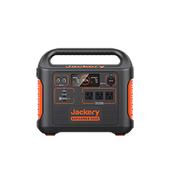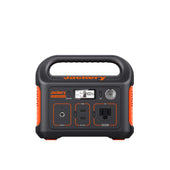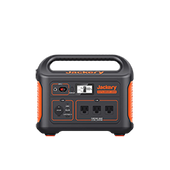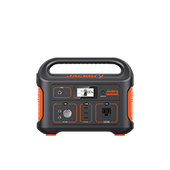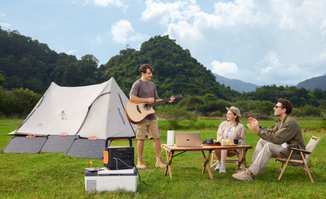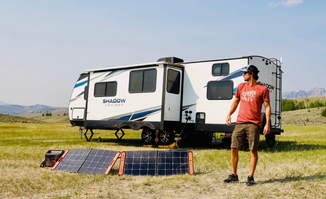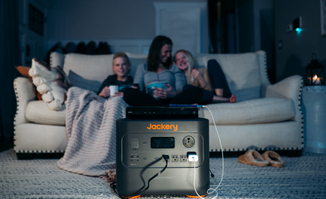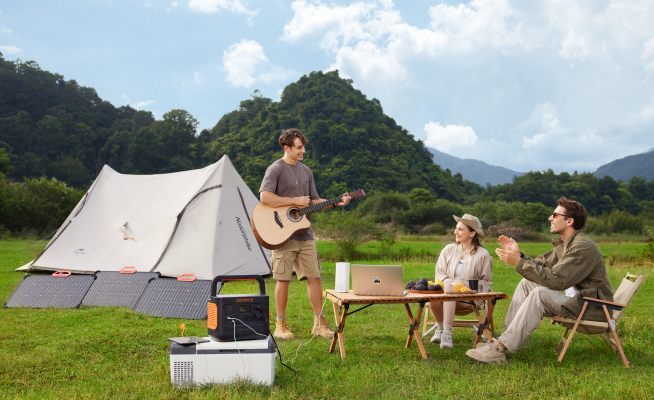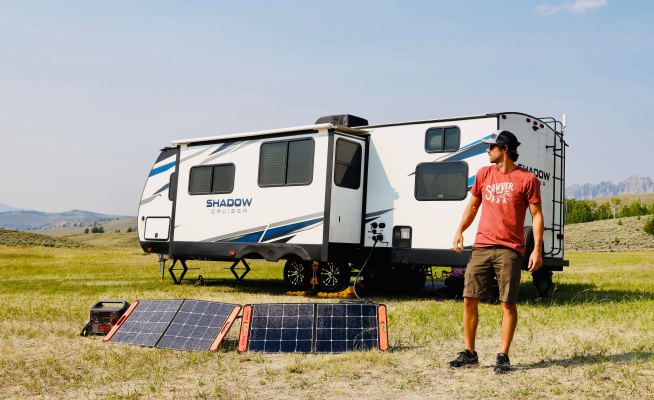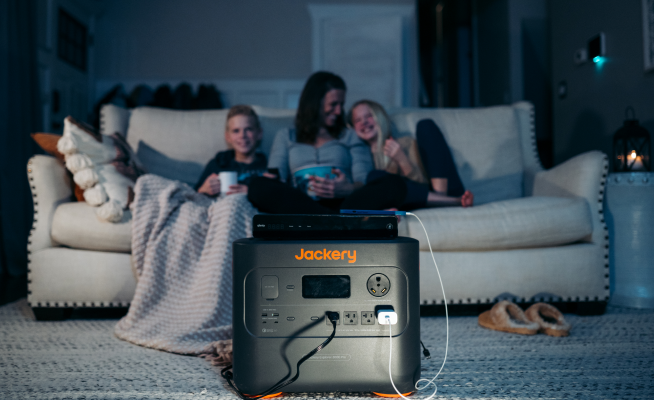Guide to Pros and Cons of Solar Panels in 2023
Nowadays, people are looking to offset their power bills and reduce environmental impact by switching to solar power. The renewable and eco-friendly energy source helps homeowners lower their carbon footprint and reduce the strain on the electrical grid. However, solar panels have some limitations, too, such as the inability to produce electricity at night.
Teaming solar panels with portable power stations is the best way to harness the sun's energy at night or on cloudy days. Jackery SolarSaga Solar Panels and Explorer Portable Power Station is the ideal sola r charging solution for homeowners wanting to choose a clean energy source to power appliances.
In this guide, we will reveal the pros and cons of solar panels in 2023 and which is the best solar solution available on the market.
What Is A Solar Panel?
Before we reveal the pros and cons of solar power panels, it's important to understand the basics of solar panels.
A solar panel (or PV panel) is a device that converts sunlight into electrical energy. Photovoltaic panels consist of multiple solar cells made of semiconductor materials like silicon. In addition, the typical solar panel consists of two other layers: boron and phosphorus. The boron layer provides a positive charge, while the phosphorus layer provides a negative charge.
These silicon cells are arranged in a grid-like pattern on a flat surface to generate electricity from solar energy. They work by absorbing the photons from sunlight and releasing electrons, leading to electricity flow. Some of the main features of solar panels include the following:
- Efficiency: Solar panel efficiency means how efficiently the panels can convert sunlight into electricity. Most high-quality solar panels convert up to 15-20% of sunlight into electricity. However, a few advanced solar panels have more than 25% efficiency like Jackery solar panels.
- Durability: As solar panels have to withstand harsh weather conditions like heavy rains, snow, high winds, and extreme conditions, they are made with durable materials. Solar panels can last up to 25-30 years if appropriately maintained.
- Portability: Solar panels come in various sizes and shapes, making them portable solar power solutions. You can purchase portable and foldable solar panels to charge power stations anytime.
- Low Maintenance:Most solar panels require little to no maintenance. All you need to do is wipe the outer surface with a clean cloth to boost efficiency.
- Environment-Friendly:Unlike gas generators that emit harmful pollutants or greenhouse gases, solar panels can produce clean and renewable energy.
In short, solar panels play an increasingly important role in meeting global energy needs. They are a sustainable, versatile, and cost-effective energy source that will help you access clean energy for decades.
How Do Solar Panels Work?

Solar PV panels consist of multiple small photovoltaic cells that convert solar energy into electricity. Below is a step-by-step breakdown of how solar panels work to generate clean energy.
Step 1: The semi-conductive silicon material plays the most important role during the working of solar panels. The tiny photovoltaic cells are made of silicon. When the sunlight falls on the upper surface of the solar panel, the silicon cells absorb the released photons.
Step 2: The released photons knock electrons out of the silicon atoms, making them free to move around. The free electrons move through the layers of the cell, creating an electric current in the circuit.
Step 3: The electricity flows throughout the circuit and reaches the edge of the panel. The conductive wire delivers the electricity to the inverter of the power station, where the DC current is transformed into an AC current.
Step 4: The AC current in the solar power station powers the appliances. The remaining energy gets stored in the power station for later use.
As you can see, solar panels do not work independently. Therefore, connecting solar panels with a solar power station is vital if you wish to charge home or outdoor appliances and keep them running for hours.
The Pros And Cons Of Solar Panels
When it comes to going solar, it's important to analyze the pros and cons of solar panels before deciding. In this section, we will discuss solar panels' pros and cons in detail.
But before we dig deep, here is a quick breakdown of solar power panel advantages and disadvantages.
|
Pros |
Cons |
|
Reduction in electricity bills |
High upfront costs |
|
Environment-friendly |
Sunlight dependence |
|
Electricity independence |
Space constraints |
|
Cost effective solution |
Long payback period |
|
High return on investment |
Difficult installation |
|
Low maintenance costs |
Efficiency limitations |
Pros Of Solar Panels
Let's take a closer look at each advantage of solar panels.
Reduction In Electricity Bill
One of the best benefits of solar panels is reducing high electricity bills. Depending on your home location, electricity usage, and home size, you can save between $10,000 to $20,000 or even more.
Environment-Friendly
Another big benefit of solar panels is that they are a renewable energy source. All you need to do is place solar panels under the sun's rays, and the panels will automatically convert sunlight into electricity. Plus, the electricity produced does not emit greenhouse gases, making it an eco-friendly solution.
Energy Independence
Unlike natural gas or coal, the sun is an infinite energy source. Solar panels directly convert sunlight into electricity, leading to reduced dependence on the electricity grid. When transitioning to solar, you can reduce your independence on non-renewable sources such as foreign oil and fossil fuels.
Cost-Effective Solution
Solar energy is free, and the system will pay for itself in a few years. Even though electricity prices are rising, the cost of solar panels is continuously falling. In fact, the price of solar panels has been reduced by 70% in the past decade, which is why many people are choosing a solar solution for their power needs.
High Return On Investment
Solar panels are a great investment, especially with soaring electricity prices. Most high-quality solar panels have a long lifespan, making them a long-lasting and durable solution.
Low-Maintenance Costs
Lastly, you do not have to spend high amounts on the maintenance costs of solar panels. You can use a clean cloth to wipe off the dust and debris from the upper surface of the solar panels.
Cons Of Solar Panels
Now that you know the pros of solar panels, here are a few limitations.
High Upfront Costs
While installing the solar panel system, you have to pay a high upfront cost. However, many options and sizes are available in the market, making it simple for you to choose solar panels depending on your needs and budget preferences.
Sunlight Dependence
Solar panels produce electrical energy only when the sun is available in the sky. Therefore, they don't produce energy at night. Furthermore, the sun's intensity varies depending on the location, time of the day, and time of the year. Cloud and snow are two other factors that can impact how much electricity is generated by solar panels.
Space Constraints
If you plan to install solar panels on your home roof or RV trip, it's important to analyze whether you have enough space. However, space constraints are less of an issue if you choose portable solar panels.
Long Payback Period
Solar panels can take several years to pay back, which means they have long payback periods. However, the exact payback period will depend on the cost of electricity in your area, how much power your system can produce, how much your system costs, and the number of incentives you receive.
Difficult Installation
Installing solar panels can be difficult, especially on your rooftop. Sometimes you need to contact experts to connect solar panels to the electricity grid. However, the best way to reduce the installation cost is by choosing portable panels that connect to the power station. They are quick and easy to install, making them the best solar power solution.
Efficiency Limitations
Furthermore, the efficiency of solar panels decreases over time due to various factors such as exposure to sunlight, weather conditions, and the natural degradation of materials. This means that solar panels will generate less electricity over time and eventually need replacing.
The Pros And Cons Of Portable Solar Panels
Portable solar panels are one of the great ways to go solar, as you can move them anywhere. They are perfect companions for outdoor activities like camping, hiking, or fishing. Portable solar panels are foldable and fit into the backup easily or carried using the handle. If you're planning to purchase portable panels, consider analyzing the pros and cons of portable solar panels.
|
Pros |
Cons |
|
Versatile |
Reliability |
|
Weather proof |
Expensive |
|
High-quality solar cells |
Reliance on battery storage |
|
Overcharge protection |
Require direct sunlight |
|
Safe to use |
Limited energy output |
Pros Of Portable Solar Panels
Here are the main advantages of portable solar panels.
Versatile
Portable solar panels are versatile in nature and are not in a fixed position. Combining a portable solar panel with a battery will help you create a full-fledged portable power system. They are great for outdoor activities like camping, fishing, hiking, etc.
Weather Proof
Most portable power solutions are water-resistant. You can even use solar panels in cloudy or rainy conditions to generate power and charge the battery. However, they will produce less energy compared to the usual capacity.
High-Quality Solar Cells
Most portable solar panels are typically monocrystalline, with a slightly higher efficiency rating than other types. Thus, they can help you generate maximum and charge your power station faster.
Overcharge Protection
Portable solar panels are equipped with a charge controller. These charge controllers provide overcharge protection to ensure a steady flow of electric current to the batteries.
Safe to Use
Unlike gas generators, solar generators are one of the safest power solutions on the market. They do not produce any harmful sparks or fumes, making them safe to use around children or indoors.
Cons Of Portable Solar Panels
Now that you know the pros of portable solar panels, here are their limitations.
Reliability
Severe weather conditions make portable solar panels less reliable. The solar panels do not function optimally in storms, rainy, and cloudy days.
Reliance on Battery Storage
To harness the power of solar panels, you'll need a battery to store energy. Therefore, using solar panels and power stations together is best to leverage the maximum sun's energy.
Require Direct Sunlight
Portable solar panels require direct sunlight to function at their highest level. Therefore, you must position them correctly and choose the right location to convert more sunlight into electricity.
Limited Energy Output
Portable solar panels are typically small in size. That said, they generate less energy compared to rooftop installations that are larger in size.
Though there are a few cons of portable solar panels, there is a solution too. Choosing a high-quality solar panel and power station can help you generate more power and charge appliances.
Best Portable Solar Panels With Jackery
With a wide range of solar power panels available, it can be hard to choose the best one. Jackery is one of the leading brands helping homeowners switch to clean and green energy.
Jackery SolarSaga Solar Panels have the highest 25% efficiency in the industry. You can team the solar panels with Jackery Explorer Portable Power Station to generate, store, and charge appliances during power outages or off-grid living.
Below are a few benefits of portable solar panels from Jackery.
- The solar panels are small, making them easy to organize and use.
- The monocrystalline solar panels have the highest efficiency of 25%, helping you make the most of solar power.
- Working with Jackery Explorer Portable Power Stations, you can store solar energy at the fastest speed.
- The easy plug-and-play operation helps you pair solar panels with power stations easily.
The two best Jackery SolarSaga Solar Panels include:
|
Products |
Compatible with |
Conversion Efficiency |
Dimensions |
Specialty |
|
All Jackery portable power stations.
|
25% |
906 × 528 × 27 mm
|
Dual-sided panels and extra-white glass boosts the conversion rate. Low iron full toughened glass adds durability. |
|
|
Jackery Explorer 240/300/500/1000/1500 power stations. |
24.3% |
Folded: 24 x 21 x 1.4 in (610 x 535 x 35 mm)
Unfolded: 48 x 21 x 0.2 in (1220 x 535 x 5 mm) |
Ultra-pure silicon delivers optimal power conversion. Lightweight, IP68 waterproof, and foldable panels are suitable for outdoor activities. |
Pros And Cons Of Solar Panels FAQs
Solar panels convert the solar energy absorbed from the sun into electricity. The following are some typical questions about the pros and cons of solar power panels.
1. What are solar power versus wind power pros and cons?
Let us compare solar power with wind power here.
Solar power is suitable for residential purposes and easier to install than wind turbines. They require little to no maintenance cost and generally last for decades. However, the downside of solar power is that you can generate electricity only when the sun is shining.
Alternatively, wind power is suitable for utility-scale and is more efficient compared to solar panels. You can generate power any time of the day. However, wind power comes with some limitations, such as high upfront costs and maintenance.
2. Is it worthy to go solar?
Although you have to spend high upfront costs while installing solar panels, going solar can help you save money in the long run. It enables you to reduce hefty electricity bills and lower the emission of greenhouse gases into the atmosphere.
3. What are the benefits of solar power versus traditional energy?
Here are a few main benefits of solar power over traditional energy.
- Renewable: Solar energy is renewable that harnesses the sun's power, whereas traditional energy, like fossil fuels, is non-renewable.
- Energy Independence:Solar power allows you to generate electricity on your own, reducing the dependence on electricity grids.
- Lower Operating Costs: Though the upfront cost of solar power is high, the operating costs are much lower as no fuel or maintenance is required.
4. Why should you switch to portable solar panels compared to rooftop panels?
Portable solar power panels offer multiple benefits compared to rooftop panels.
- Portable solar panels are simple to install, whereas rooftop panels require experts.
- You can adjust the portable and foldable solar to get the maximum sun's rays. However, tilting panels is impossible when installed on the roof.
- As portable solar panels do not require mounting hardware or a complicated setup, they are cost-effective.
Jackery SolarSaga Solar Panels are portable and highly efficient renewable energy sources. Connect them to portable power stations to charge your appliances anytime and anywhere.

Final Thoughts
Solar technology is continuously improving, and many homeowners are choosing solar power panels to charge batteries. Whether you're an outdoor enthusiast who loves camping or wants to reduce dependence on electricity grids, solar generators are the best choice.
Now that we have examined the pros and cons of solar panels, it's time to understand your power needs and choose the one that will suit your preferences. Jackery is the leading brand of solar panels and portable power stations.
You can choose the Jackery SolarSaga Solar Panels and Explorer Portable Power Station to generate power when you're away from an electricity source. Subscribe to the Jackery newsletter to get all the latest news about Jackery products, promotional offers, and deals.
Disclaimer:
The runtime mentioned for appliances powered by Jackery is for reference only. Actual runtime may vary under different conditions. Please refer to real-world performance for accurate results.






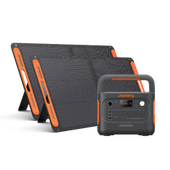


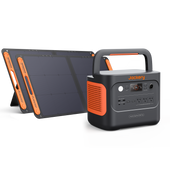

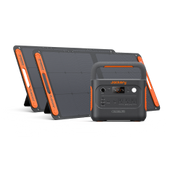
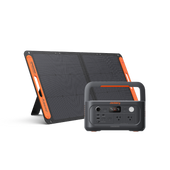
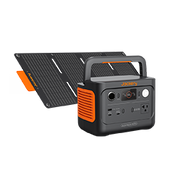
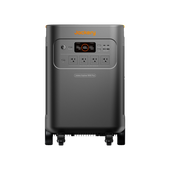
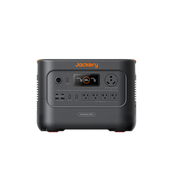
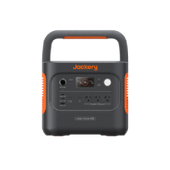
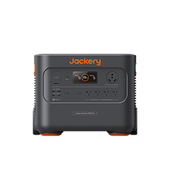
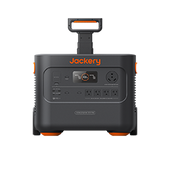

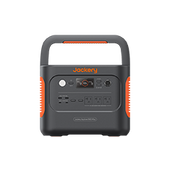
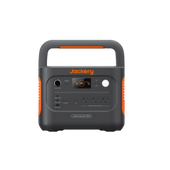
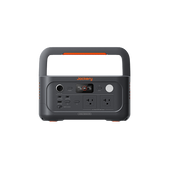

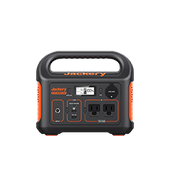
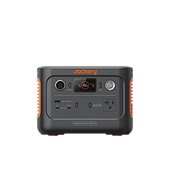
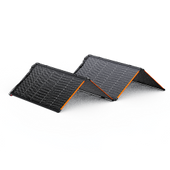
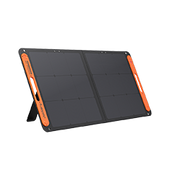

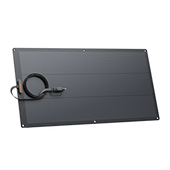
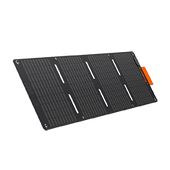
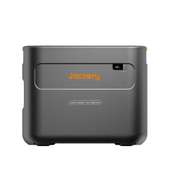
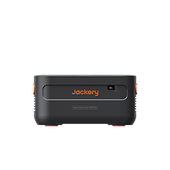
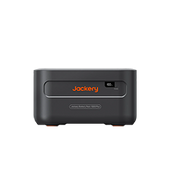
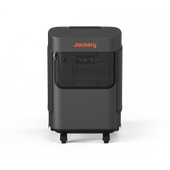
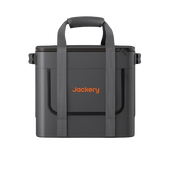
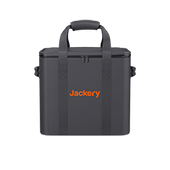
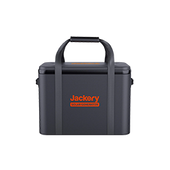
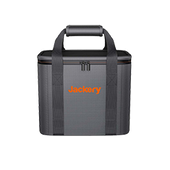
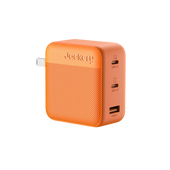
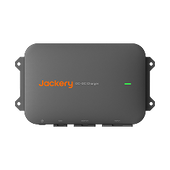
![[Add-on] Jackery Manual Transfer Switch for Explorer 5000 Plus](http://ca.jackery.com/cdn/shop/files/add-on-jackery-manual-transfer-switch-for-5000-plus-240V.webp?v=1757043692&width=170)
